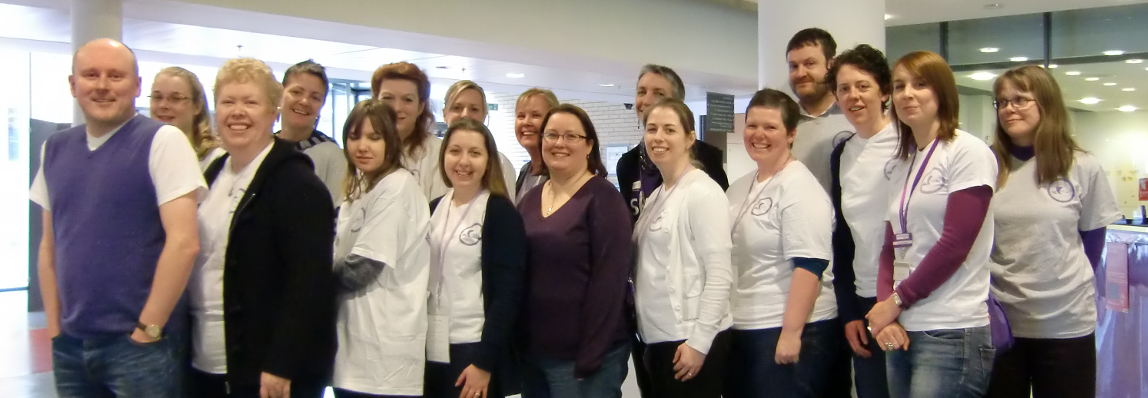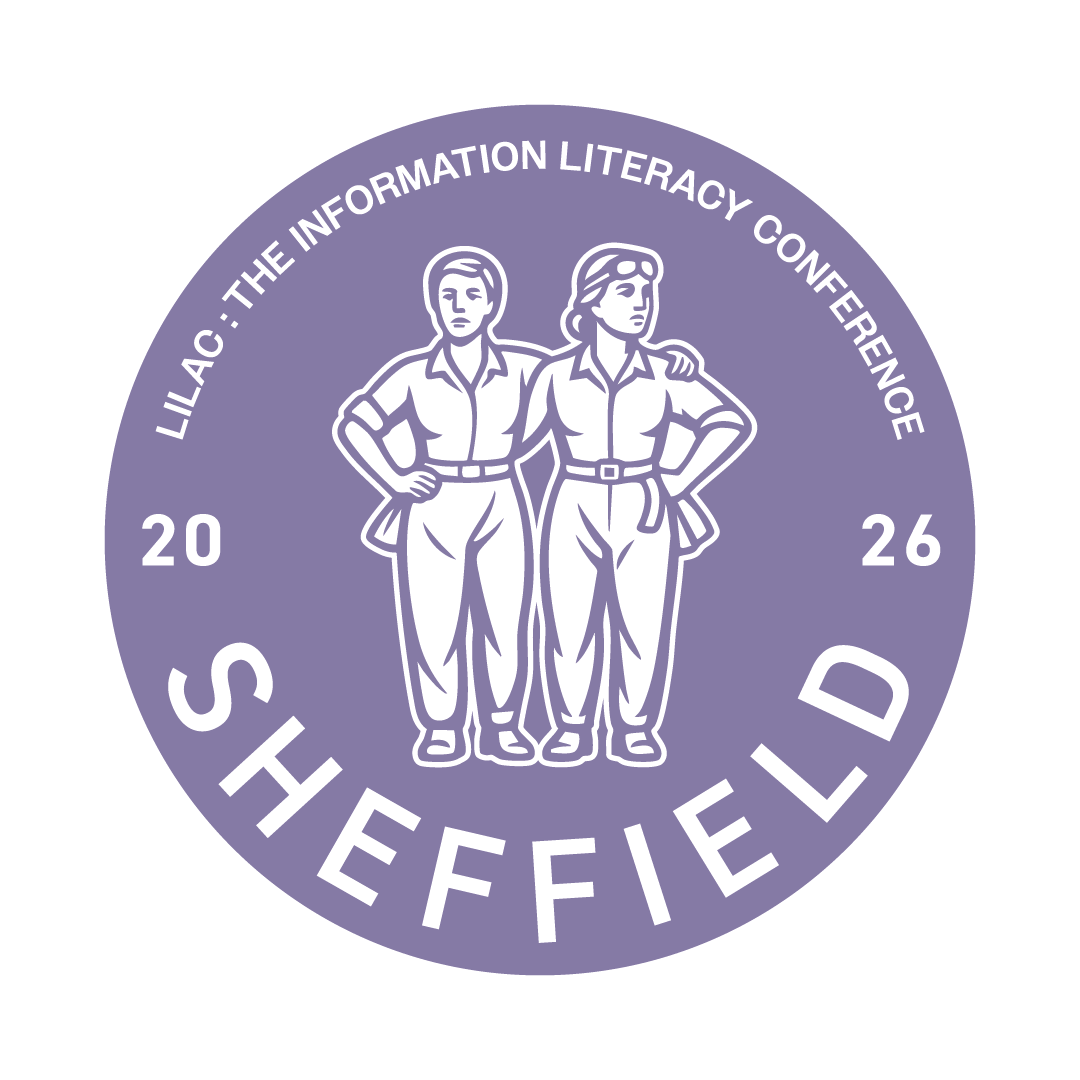
On this page you will find details of:

A selection of photos from the conference can be found on our flickr.
Steve Wheeler (Associate Professor of Learning Technologies, Plymouth University) – Learning 2.0: Digital pedagogy (watch online).
JP Rangaswami (Chief Scientist, Salesforce.com) – Librarians and the 21st century: a personal view (watch online).
Dr Irmgarda Kasinskaite-Buddeberg (Programme Specialist, United Nations Educational, Scientific and Cultural Organization (UNESCO), Communication and Information Sector, Knowledge Societies Division) – Mainstreaming information literacy for the promotion of universal access to information (watch online).
The themes for LILAC 2013 were:
Løkse, M. (2013). LILAC 2013. Fagreferenten forteller [Online]. Available at: http://fagreferenten.blogspot.co.uk/2013/04/lilac-2013.html?spref=tw (Accessed: 25 April 2013.
Webber, S. (2013). Information Literacy Weblog [Online]. Available at: http://information-literacy.blogspot.co.uk/search/label/lilac13 (Accessed: 8 April).
Wheeler, S. (2013). Technology won’t replace teachers, but… Learning with e’s [Online]. Available at: http://steve-wheeler.blogspot.co.uk/2013/03/technology-wont-replace-teachers-but.html (Accessed: 8 April 2013).
Wrathall, K. (2013). LILAC 2013 – a brief personal overview. Thoughts from the window [Online]. Available at: http://smilylibrarian.wordpress.com/2013/04/02/lilac-2013-a-brief-personal-overview/ (Accessed: 8 April 2013).
Abson, C. & Lahlafi, A. The application of IL to gain and undertake graduate employment: a collaboration between the library and the careers service at Sheffield Hallam University.
Bell, M. Supporting students: raising the profile of IL (teachmeet).
Boland, J. Designing an IL module for a new route PhD (poster).
Bradley, C. A subject-driven, case-based approach to plagiarism prevention education (teachmeet).
Brage, C. & Gustafsson Åman, K. Is it possible to support workplace information literacy already at university? An opinion paper.
Brooks, I. Paper chains and octopuses (poster).
Buckley Woods, H. Activate your journal club (teachmeet).
Butler, E. The Information Literacy Toolkit project.
Carbery, A. Arming the teacher librarian: using experiential learning and reflective practice to guide pedagogy.
Carrier, H. Information literacy instruction for online graduate students: from class assignments to publishable work.
Carver, K. & North, S. ‘Library language: words and their definitions’: supporting international students in information literacy.
Clark, S. “Time’s a factor here!” Exploring the information-seeking experiences of mature learners.
Collins, L. Reflecting upon reflection.
Coulbeck, S. Winnie-the-Pooh and the EPQ (teachmeet).
Crilly, J. Things unlimited? (poster).
Critten, J. The medium and the message: how cultural studies can improve information literacy instruction.
Cuthbertson, A. Huntingdonshire Regional College’s journey with information literacy and e-safety.
Dalziel, P. Information Literacy via Collaborate (teachmeet).
Davis, E. & Lundstrom, K. Creating time for learning: strategies for flipping your library classroom.
Dodd, L. The information literacy impact factor: how to measure value.
Dodd, L. & Boyle, S. Breaking the core programme barrier.
Doolan, L. A catalogue revolution and the information literate librarian.
Edwards, A., Hill, V. & Walsh, A. Games and gamification for information literacy.
Else, O. Murder in the library.
Fall, E. & , Grandsjö L. Competence development with iPads: to meet the new technological challenges in the digital future.
Goldstein, S. RIDLs: a collective approach to information literacy in Higher Education research.
Graham, N. Sharing information literacy resources globally: the opportunities and challenges of open education.
Grant, V. & Brewster, L. Creative pedagogies and health information literacy: the Storying Sheffield Knowing as Healing Project.
Hagstrom, C. & Cunningham, H. No rock stars involved: capturing the interest of first-year medical students in a health information literacy session (teachmeet).
Hagstrom, C., Kendall, S., Hough, J. & Bisrat, A. Health literacy instruction abroad: planning and reality (poster).
Hathaway, H. What did I do wrong? Supporting independent learning practices to avoid plagiarism.
Hickey, P. Reorganising to succeed.
Hollier, C., Dase, A. & Smyth, N. Extending the academic library: social responsibility, information literacy and schools.
Howorth, N. & Walsh, A. The Informed Researcher at Huddersfield.
Huisman, R. Project-based learning: faculty and librarian partners in pedagogy (poster).
Jackson, C., Finlay, J. & Nicholls, J. Exploring the value of a consensus view of digital and information literacies (poster).
Jackson, C. & Secker, J. Publication without tears: tips for aspirational authors.
Johansson, C. & Wernbro, M. Learning by teaching (teachmeet).
Jones, R. & Blake, J. Not just a pretty face: putting the learning into the Learning Commons.
Kågedal, A., Wiberg, N., Vidlund, L. & Warén, E. Project: Mobile Academics (teachmeet).
Kelly, B. When staff and researchers leave their host institution.
Kessinger, P. Integrated instruction framework for information literacy (and related document).
Lincoln, H. & Evans, P. Integrating iPads into academic library information literacy (teachmeet).
Løkse, M. & Låg, T. Deterring plagiarism by strengthening teacher qualifications (poster).
Maddison, G. The information literacy challenge in public libraries in Wales (see also candidate logbook, and candidate logbook level 2).
McCann, D. & Peacock, R. On Cloud 9: using Google to make assessment a breeze.
McCluskey, C. Bite-sized information literacy (teachmeet).
McCluskey, C. & O'Grady, I. Faculty, library and special collections: how three areas work together to promote information literacy (poster).
Munks, S. & Howorth, N. Quick referencing with QR codes (teachmeet).
Murphy, S. & Clarke, L. 21st century first years.
Musemburi, D., Mushowani, A. & Duvigneau, S. Collaboration and Partnership in developing Information Literacy Pedagogy in Zimbabwe.
Mynott, G. & Bonser, C. Using visual literacy in teaching and learning.
Nephin, E. Easing the transition: threshold concepts and IL workshops for visiting Y13 students.
Nephin, E. & Luker, W. Embedding digital literacy at Leeds Metropolitan University.
Newall, E., Gratton, C. & Maltby, J. When the Graduate School came knocking at the library door: a tale of invitation, collaboration and innovation.
Osborne, A. Learning from the learners: the student voice in information literacy.
Patterson, R. Working with what you’ve got: using limited resources and staff to build an information literacy program (teachmeet).
Parkes, D. & Pope, A. Experienced, empowered, engaged: showcasing skills for the future.
Peacock, R. & McCann, S. A gift given is a gift received: Improving instruction through design thinking.
Pietsch, A. & Hall, J. Embedding transliteracy values: staff development in the post digital age.
Sales, N. Flipping the classroom: revolutionising legal research training at the University of Salford (teachmeet).
Schneider, M. The Final Chapter: developing the academic skills of final year project students.
Shields, E. Smoothing the path from undergraduate to employee: MMU Library’s contribution to study skills & employability online resources (teachmeet).
Shields, E., Jones, R. & Peters, K. Transform your training the sequel: return of the interactive IL trainers.
Siddall, G. HELP! An AL’s survival guide to developing online tutorials without time or skill.
Sieber, V. & Tarron, M. Supporting information literacy and study skills with Open Educational Resources (OER).
Smith, R. Did you know? Marketing information literacy (poster).
Southam, A. & Moody, J. International Students: a collaborative approach to teaching IL skills.
Stokes, P. Profiling nursing students for information skills training (poster).
Stuart Edwards, E. & Cope, E. Internal collaboration: Working together to deliver Library and Information Skills Training (LIST).
Turner, A. The ideas factory: a collaborative project for the information literate filmmakers of tomorrow (poster).
Walsh, A. I’m off to uni and I’ve got an iPad! Now what do I do with it? (poster).
Walton, G. Can information literacy support social enterprise?
Webber, S. Developing profiles for the information literacy professional.
Webber, S. Developing profiles for the information literacy professional (poster).
Webber, S. & Ford, N. Collaborating for deep, critical information behaviour.
Westwood, H. & Burke, R. Bedding in with the geographers: a case study.
Wood, R. Collaboration and partnership: developing the Academic Skills Centre at the University of Birmingham.
Woods, E. & Oradini, F. Project DigitISE: Digital Information Skills for Employability.
Wrathall, K. & Secker, J. ANCIL: integrating information literacy into the curriculum through research, reflection and collaboration.
Young, L. & Stevenson, C. A room without walls: using problem based learning in a collaborative real-time virtual space to develop critical research skills in an FE college.
LILAC is great opportunity for our fellow professionals to present their ideas, share best practice and show case new thinking in our sector. If you have an idea then we'd love to hear about it. We have many options for the types of sessions you might run from a symposium to a workshop. Visit our Call for Presentations page to find out how to apply.
Places at this year's conference are likely to be in demand more than ever before. Each year our conference grows increasingly popular and this year promises to be no different. Don't miss out and book your place now for this year's conference.
We look forward to seeing you there!
